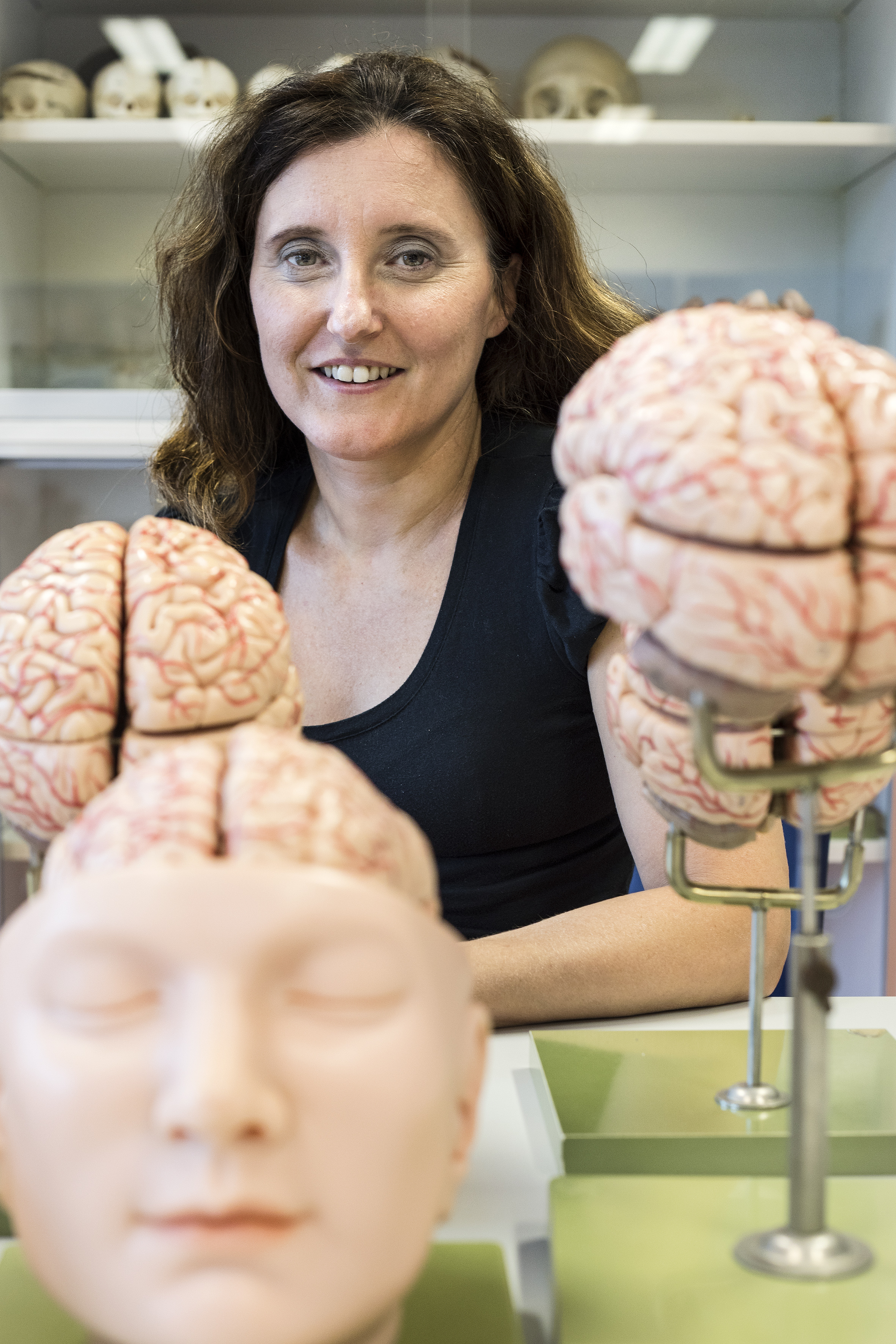Prof. Pilar Martinez receives € 200,000 for Alzheimer's research into fats
The Dutch Brain Foundation (Hersenstichting) has granted €200,000 to a study investigating the balance of fats in the brain in the development of Alzheimer’s disease. The research will be conducted by Professor Pilar Martinez from the Maastricht University Medical Centre+.
The brain is largely made up of ‘fats’, including sphingolipids. The balance of these fats in the brain is very precisely regulated; if something goes wrong, it can lead to serious brain disorders such as Alzheimer’s. The aim of the research is to understand how disruptions in the fat balance in the brain affect the process of Alzheimer’s disease. The focus will be on the role of these fats (lipids) in inflammatory reactions that are characteristic of Alzheimer’s. ‘What sets this study apart is its focus on a different disease mechanism. The vast majority of research on Alzheimer’s disease focuses on protein storage’, explains Martinez, a neuro-immunologist at the Maastricht UMC+.
Continuation of earlier research
This is a follow-up to a previous study in which Martinez showed that the metabolism of sphingolipids plays a role in the development of Alzheimer’s. When she altered these fats, fewer proteins associated with the onset of Alzheimer’s were produced. The results of that study provide an interesting starting point for the development of potential medications for Alzheimer’s.
Importance of the research
In total 153.000 people in the Netherlands suffer from Alzheimer’s disease, a figure that is expected to double in the next 20 years. Alzheimer’s is the most common form of dementia. It is linked with a decrease in the number of brain cells and disruptions in specific proteins, resulting in poorer communication between brain cells.
‘At present there is no therapy available that can effectively combat Alzheimer’s,’ says Koko Beers, spokesperson for the Brain Foundation. ‘To develop effective therapies in the future, it is essential to understand how the disease is caused and why some people are more susceptible to it than others.
‘We’re funding this study because previous research into the functioning of sphingolipids showed promising results. This study also focuses on a possible cause other than protein storage, which we’re already supporting research on.’
About the Brain Foundation
One in four people has a brain disorder. With brain disorders fast becoming the most prevalent disease in the Netherlands, sooner or later they affect us all. This has to stop, because a brain disorder turns your life upside down. This is why the Brain Foundation is doing everything it can to make sure everyone has a healthy brain, now and in the future. Rather than focusing on a single disorder, we invest in diverse, pioneering solutions that help prevent, inhibit, or cure brain disorders. We do this by sponsoring research, providing information and working to improve patient care. For more information, see www.hersenstichting.nl.

Professor Pilar Martinez: "What role does the transporting of fat play in Alzheimer’s disease?"
Also read
-
In honour of the presentation of the VNVA Els Borst Prize for her oeuvre, Prof Marlies Bongers is organising the symposium "menstruation in RED on the agenda" on 1 October.
-
In women trying to conceive, 1-3% experience repeated miscarriages. For more than 50% of these women, a cause for the miscarriages has yet to be found. New research from Maastricht University (UM) and the Maastricht University Medical Centre+ (MUMC+) shows that the immune system’s Natural Killer (NK...
-
The European Commission has awarded €23 million to set up a new platform for drug repurposing: the use of existing drugs in diseases other than those for which they were originally developed. In the next seven years UM will develop the platform REPO4EU (precision drug REPurpOsing for Europe)...


